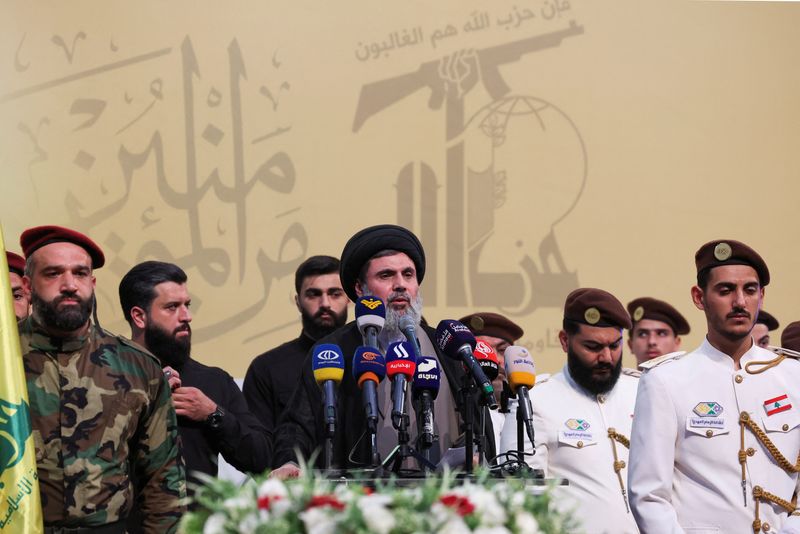Hashem Safieddine, the Nasrallah relative seen as future Hezbollah leader

BEIRUT (Reuters) – Hashem Safieddine, reported by Israel as apparently killed in its confrontation with Hezbollah, is a cousin of the group’s slain former leader Hassan Nasrallah who has held senior posts in the group and whose statements reflect its militant stance.
Like Nasrallah, Safieddine is a cleric who wears a black turban denoting descent from Islam’s Prophet Mohammed. His physical resemblance to Nasrallah, who led the Iran-backed Lebanese Shi’ite group for more than three decades, has also marked him as a favourite for the succession.
Safieddine was not attending the meeting in Beirut’s southern suburbs on the evening of Sept 27 that Israel attacked with an air strike, killing Nasrallah.
But he has been nurtured as an influential leader and potential heir. As head of Hezbollah’s executive council, he has overseen the group’s political affairs, while also sitting on the Jihad Council, which manages its military operations.
Safieddine began being touted as a possible successor after the 2006 Israel-Hezbollah war, increasingly making speeches and public appearances, due to concerns that the Israelis could kill Nasrallah, said Phillip Smyth, an expert who studies Iran-backed Shi-ite militias.
His public statements have often projected Hezbollah’s militant posture and its alignment with the Palestinian cause.
At a recent event in Dahiyeh, Hezbollah’s stronghold in southern Beirut, he declared, “Our history, our guns and our rockets are with you,” in a show of solidarity with Palestinian fighters.
He has also been vocal in his criticism of U.S. policy. In response to U.S. pressure on Hezbollah, he stated in 2017: “This mentally impeded, crazy U.S. administration headed by (former U.S. President Donald) Trump will not be able to harm the resistance,” asserting that such actions would only strengthen Hezbollah’s resolve.
The U.S. State Department designated him a terrorist in 2017 and in June he threatened a major escalation against Israel after the killing of another Hezbollah commander. “Let (the enemy) prepare himself to cry and wail,” he said at the funeral.
Safieddine would lead an organisation that thanks to long-running support from Iran had developed into a formidable non-conventional army, but which has recently been dealt deep blows by an intensifying campaign of Israeli attacks.
By U.S. and Israeli estimates Hezbollah had some 40,000 fighters ahead of the current escalation, along with large weapons stockpiles and an extensive tunnel network near Israel’s border.
It is not the first time Hezbollah has had to replace a slain leader. Israel killed Nasrallah’s predecessor, Sayyed Abbas al-Musawi, in a helicopter attack in 1992.
This time as Hezbollah tries to rebuild, Safieddine’s family ties could bolster his standing. “You’re dealing with the Nasrallah family network,” said Smyth. “You’re dealing with somebody who, quite literally, is from that same clan, looks like him.”
But Nasrallah could also prove a hard act to follow: he was a charismatic, widely-recognised leader of a sprawling movement that he steered into becoming the linchpin of Tehran’s network of allied groups in the Arab world.
“They have banked on his ability to convince the support base, and his charisma and appeal regionally,” Mohanad Hage Ali of the Carnegie Middle East Center said of Nasrallah. “He has been the glue that has held together an expanding organisation.”
(Editing by William Maclean)









